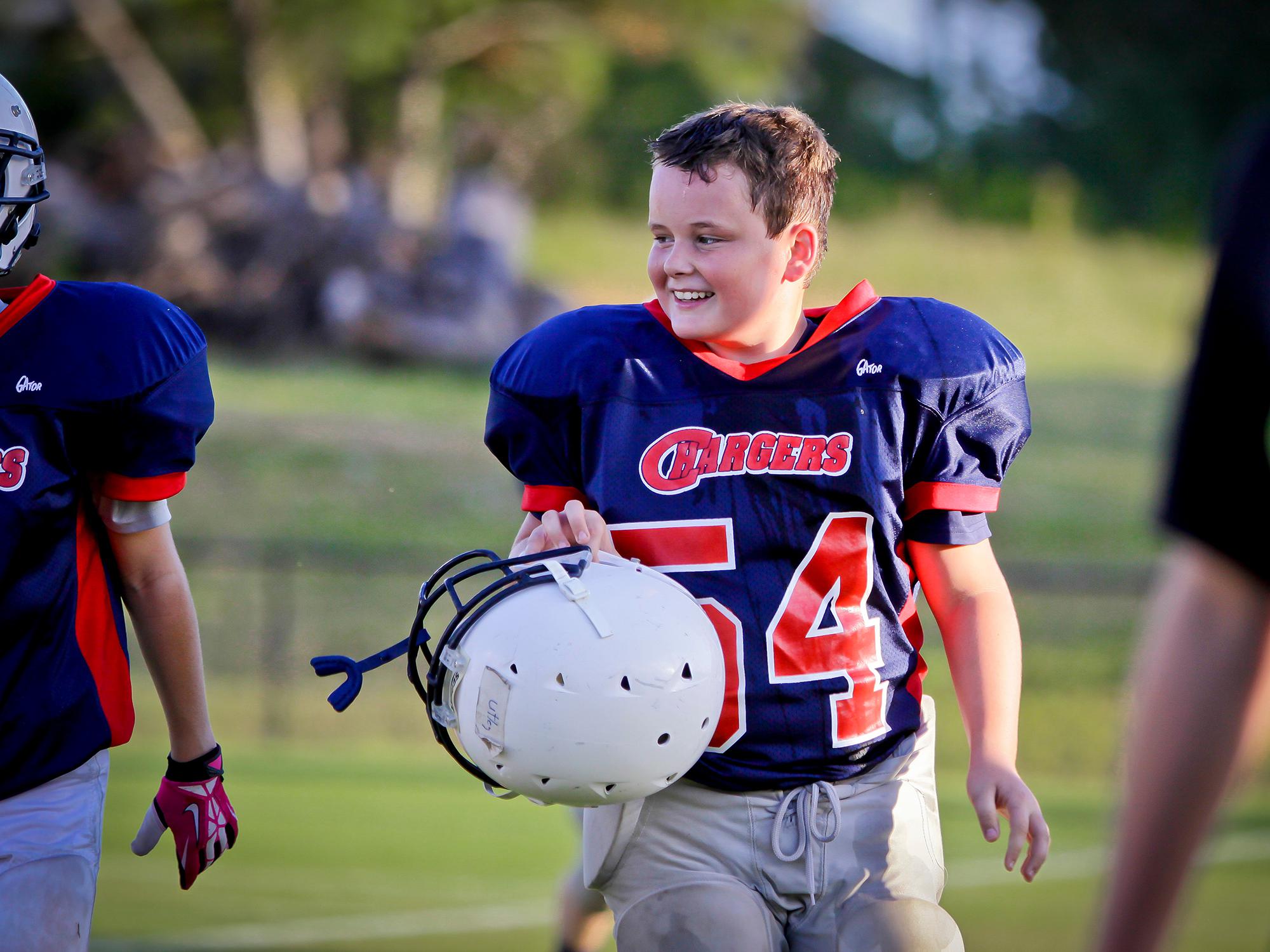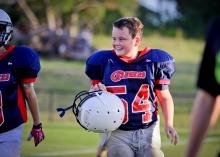Information Possibly Outdated
The information presented on this page was originally released on July 27, 2016. It may not be outdated, but please search our site for more current information. If you plan to quote or reference this information in a publication, please check with the Extension specialist or author before proceeding.
Nutrition, training work hand-in-hand for athletes
By Michaela Parker
MSU Extension Service
STARKVILLE, Miss. -- Student athletes will be returning not only to the classroom soon, but also to after-school practice and games.
Research shows that around 70 percent of children participate in organized sports. In addition to exercise, young athletes need nutritious, well-balanced diets to reflect their active lifestyles.
Brent Fountain is an associate professor of human nutrition with the Mississippi State University Extension Service and a certified specialist in sports dietetics. He said athletes’ diets should meet the demands of their sports and provide enough energy to fuel normal bodily functions.
“Just as each sport is different, so are the nutrition strategies that complement each activity,” Fountain said. “Each athlete should develop a strategy that works for him or her, including what to eat during training and before, during and after competition.”
In addition to cheering their favorite athletes at games and practices, parents can support them at home by providing nutritious meals to complement their sports.
“Nutrition is just as important as the training children put into their sports competition,” Fountain said. “By providing a wide variety of foods that are rich in nutrients, parents will help their athletes meet their needs.”
Young athletes need energy, which can easily be found in carbohydrates. Foods such as fruits, whole grains and starchy vegetables will provide athletes with energy to use during practice and games, Fountain said.
Fountain encouraged athletes to eat plenty of protein, which repairs damaged tissues and builds new tissues. Consuming proteins found in beef, poultry, fish, nuts and milk after exercise can also be beneficial to the athlete.
Make sure athletes are consuming enough calories throughout the day. Consume fats in moderation to meet the balance of calories once carbohydrate and protein needs are met. Fountain also encouraged growing athletes to make sure they get plenty of vitamins and minerals.
Many sports practices are after school, which may be the hottest time of the day. Children and the adults who supervise them need to make sure everyone stays hydrated.
Natasha Haynes, host of “The Food Factor” and an MSU Extension agent in Rankin County, said drinking enough water is necessary for good health.
“When people are too hot, they sweat, which lowers their body temperature as sweat evaporates,” Haynes said. “Water helps regulate body temperature. It also helps the body absorb nutrients and then carry nutrients and oxygen to all cells in the body.”
Haynes recommended athletes follow a hydration guideline to ensure adequate replacement of fluids lost through exercise.
Drink at least 12-22 ounces of water, which is about the size of a standard plastic water bottle, two hours before practice starts. Drink 6-10 ounces of fluids 10-15 minutes before exercising. During practices or games, athletes are encouraged to drink 6-10 ounces of fluids every 10-15 minutes. In stop-and-go sports like football, baseball and softball, athletes should drink when they are not playing.
Haynes suggested drinking 3 cups of fluid for every pound lost during exercise. That amount will replace fluids lost during practice or play and return the athlete to normal hydration.
“Lack of water decreases physical performance such as coordination, strength, stamina and concentration,” Haynes said. “It also decreases the body’s ability to cool off and can lead to muscle cramps, headaches, nausea and exhaustion.”
Other than cool water, Haynes recommended milk or low-sodium vegetable juice and soup broth. Athletes should avoid drinking soft drinks and energy drinks.









